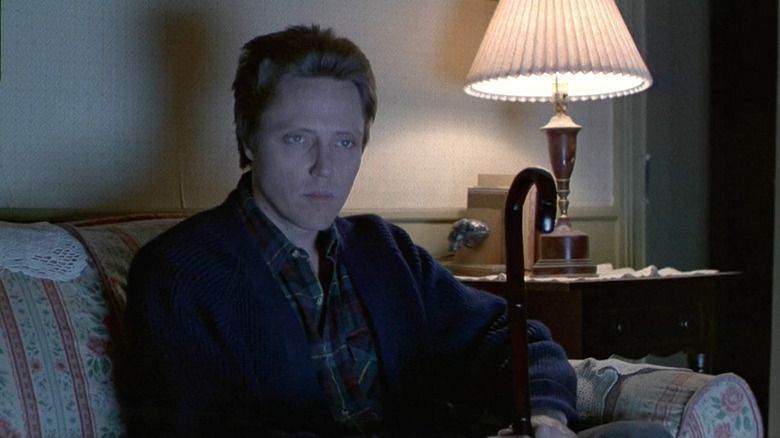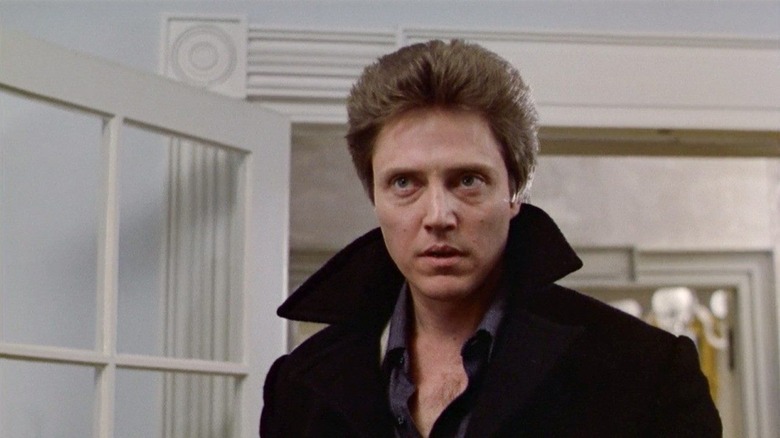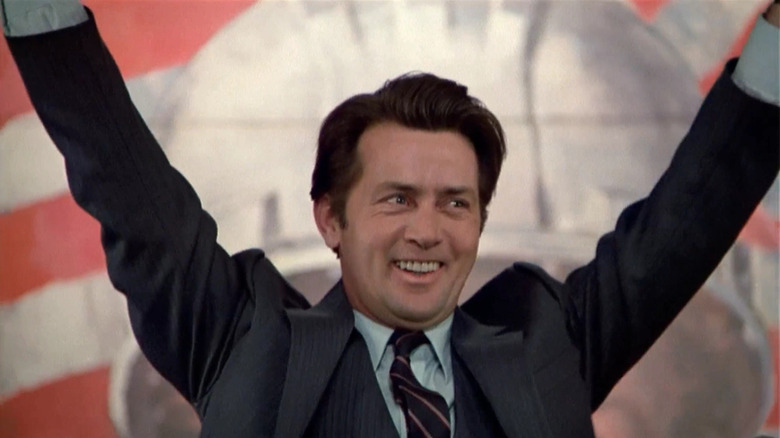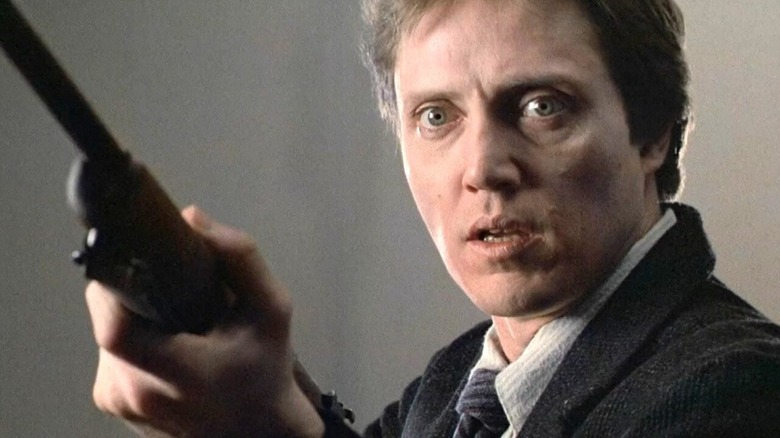David Cronenberg Couldn't Stand Stephen King's Original The Dead Zone Script
We tend to associate David Cronenberg more with horrible mutations and corruptions of the flesh rather than the supernatural, yet one of his most gripping and compulsively watchable films came in 1983 with "The Dead Zone." It was the third and best of the Stephen King adaptations that year, released between the rabid dog thriller "Cujo" and John Carpenter's menacing killer car movie, "Christine."
"The Dead Zone" was also Cronenberg's second film of the year, his first working from another writer's screenplay, and something of a palate cleanser after the gnarly excesses of "Videodrome." He wrote (via Den of Geek):
"Videodrome" was a very heavy experience. If you're used to comedy, "The Dead Zone" is a very heavy picture. But if you're used to "Videodrome," "Dead Zone" is not. At that point I needed to do something based on somebody else's work, as a relief.
"The Dead Zone" was a bestseller for King and a film adaptation was in development by Lorimar Film Entertainment as early as 1979, originally adapted by Jeffrey Boam with Stanley Donen ("Singin' in the Rain") attached to direct. After the veteran director better known for Technicolor musicals departed the project and Lorimar shuttered their film division after a string of flops, Dino Di Laurentiis bought up the rights.
The old school producer, the man behind "Flash Gordon," "Serpico," "Blue Velvet," and dozens of other hits, disliked Boam's screenplay and offered King the chance to adapt his own novel instead. Cronenberg, now onboard to direct, wasn't keen on King's script at all.
So what happens in The Dead Zone again?
We meet Castle Rock school teacher Johnny Smith (Christopher Walken) as he heads out on a date with his girlfriend Sarah (Brooke Adams), which involves a rather chilly-looking rollercoaster ride. He suffers an intense headache and declines the offer to stay at her place for the night. Instead, he drives home through a storm and gets into a terrible car crash that leaves him in a coma.
Five years later, Johnny wakes up in a hospital to find his muscles have wasted, his job is gone, and Sarah is now a married mother. More mysteriously, he also has the ability to see events in a person's past, present, and future just by touching their hand. He becomes a local celebrity by saving a nurse's daughter from a house fire with his newfound power, and Sheriff Bannerman (Tom Skerritt) approaches him for help solving a series of murders.
Johnny is initially reluctant, but he can't resist doing the right thing. Another vision reveals the identity of the killer, but the suspect takes his own life in an unnecessarily nasty way before Bannerman can arrest him. Johnny is shot and wounded by the killer's mother.
After recovering, Johnny moves to another town, alone, ailing, and disillusioned with his clairvoyance. He teaches privately and, after saving the life of a rich man's son, attends a campaign rally for Greg Stilson (Martin Sheen), a firebrand populist candidate for the Senate. Shaking hands with the man gives Johnny his most terrifying vision to date, leaving him with a deadly decision to make.
Does The Dead Zone still hold up?
Much like Kubrick's take on "The Shining," Cronenberg's detached, forensic approach counterbalances the author's folksy style, resulting in a supernatural thriller that is as rigorously controlled as it is emotionally engaging. Key to the film's success is Walken as Johnny. These days, he's better known for playing sinister characters and his offbeat cadence, but he's utterly affecting as one of the purest "good" characters in horror. His performance is every bit as good as his tragic turn in "The Deer Hunter," dominating the whole movie as the decent guy who becomes ever more isolated thanks to his unwanted gift. His circumstances are heartbreaking, and Walken does so much with the barest flicker of his gaunt features or an extra split-second pause, best demonstrated in the scene when he finds out that Sarah has moved on with her life while he was still in the coma.
While there are few scares in "The Dead Zone," the film has an almost overwhelming sense of sorrow and foreboding, its mournfulness radiating from Walken's forlorn protagonist. It ranks among the actor's best performances and it's almost impossible to imagine anyone else in the role. That wasn't always the case; Cronenberg originally wanted Nicholas Campbell, who went on to play Deputy Frank Dodd in the film, while Stephen King wanted Bill Murray. The director later commented on how perfect Walken was (via Den of Geek):
It's Chris Walken's face. That's the subject of the movie; that's what the movie was about. All the things that are in his face.
Cronenberg also disagreed with King on the content of the author's screenplay...
Cronenberg didn't like Stephen King's screenplay at all
After Dino De Laurentiis bought up the rights to "The Dead Zone" and invited Stephen King to have a crack at adapting it himself, Cronenberg was far from pleased with the author's interpretation of his novel. Cronenberg said (via Den of Geek):
Stephen King's own script was terrible. It was not only bad as a script, it was the kind of script his fans would have torn me apart for doing... It was basically a really ugly, unpleasant slasher script. The Castle Rock killer in the middle of the movie becomes the lead, and it was, "Let's show lots of his victims."
Boam, the original screenwriter, agreed with Cronenberg's assessment, saying King "Missed the point of his own book."
The Polish maverick Andrzej Zulawski was drafted in to work on the screenplay instead, an intriguing but somewhat terrifying prospect if you've ever seen "Possession." De Laurentiis wasn't happy with his approach either, so Boam was brought back in. It was the right choice; Boam's screenplay, originally developed with Donen, worked well with Cronenberg's restraint, resulting in a film focused more on the vision-haunted Johnny and his tragic arc rather than violence, scares, or gore.
For his part King was gracious about the changes, saying they "improved and intensified the power of the narrative." Coming from the author who was very critical about Kubrick's tweaks to his haunted hotel novel, that is very high praise indeed for "The Dead Zone," a gem that still ranks as one of the best ever Stephen King adaptations.



